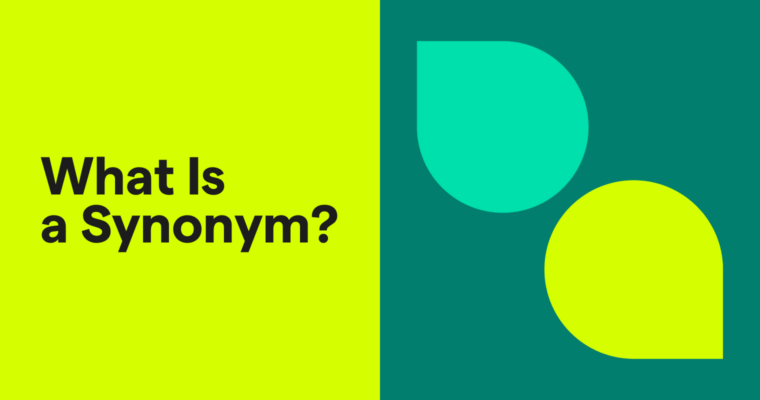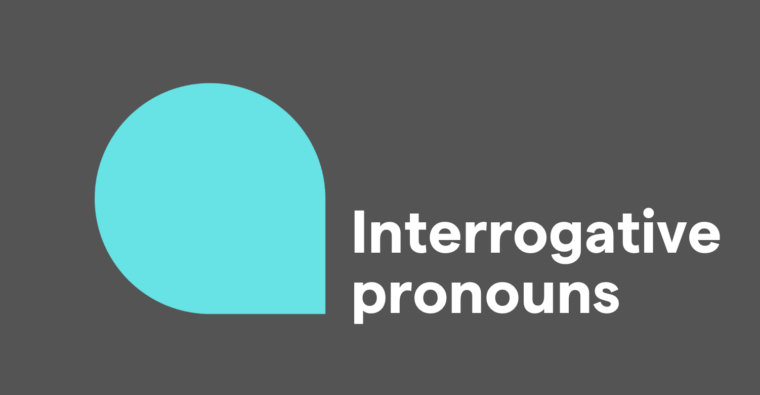
Key takeaways:
- Synonyms are words with identical or nearly identical meanings.
- The purpose of synonyms is to improve word choice and clarity while preventing overuse of the same word.
- There are three types of synonyms: absolute synonyms, partial synonyms, and near-synonyms.
Synonyms are words that have the same or very similar meanings. For example, beautiful and attractive both describe something visually appealing.
As common grammar mistakes often involve word-choice errors, using synonyms effectively can enhance your writing. Whether you’re writing a novel or a professional email, understanding synonyms allows you to avoid repetition and choose precisely the right words.
Let’s explore what synonyms are, when to use them, and the different types of synonyms in English.
Table of contents
What are the types of synonyms?
What’s the purpose of synonyms?
What are synonyms?
Synonyms are different words that have the same or similar meanings. They exist across every word class and part of speech, including nouns, verbs, adjectives, adverbs, and prepositions.
As a synonym example, let’s look at synonyms for good. As one of the most commonly used words, good has a lot of synonyms that mean the same or almost the same thing: fine, excellent, satisfactory, wonderful, superb, etc.
Notice how the meanings are not always identical; for example, excellent is a high degree of good, while satisfactory communicates a minimal amount of good. Still, the central idea is the same: All these synonyms refer to something positive.
Below are several examples of synonyms for common English words.
10 synonym examples
| Word | Synonyms |
| Happy | Cheerful, joyful, content, pleased |
| Sad | Miserable, unhappy, sorrowful, downcast |
| Slow | Sluggish, leisurely, unhurried, delayed |
| Fast | Quick, speedy, rapid, swift |
| Small | Petite, tiny, little, miniature |
| Big | Huge, large, massive, immense |
| Begin | Commence, start, launch, initiate |
| End | Conclude, finish, cease, terminate |
| Strong | Powerful, robust, sturdy, resilient |
| Weak | Frail, delicate, fragile, powerless |
Synonym vs. antonym
When discussing synonyms, the term antonym often comes up. While synonyms are words with the same or similar meanings, antonyms are words with opposite meanings. For example:
- Antonym of happy: sad
- Synonym of happy: joyful
Using a dictionary or thesaurus can help you understand synonyms and antonyms. Also, Grammarly has a handy feature that lets you double-click a word to see common synonyms. This makes it easier to find the right word and improve your writing.
What are the types of synonyms?
As mentioned above, some synonyms have identical meanings, while others have nearly identical meanings. With that in mind, there are three different types of synonyms based on the degree of similarity in their meanings.
Absolute synonyms
Absolute synonyms are words that mean the same thing. You can use absolute synonyms interchangeably; one synonym can replace another without changing the message.
Examples:
- Identical—indistinguishable
- Drink—beverage
- Close—shut
Partial synonyms
Partial synonyms are words with nearly the same meaning but only slight differences. What separates them can be a degree or amount, such as the difference between good and excellent. Or, one word can be a specific type of a more general word—the way a puppy is still a dog.
If you replace a word with its partial synonym, the meaning changes slightly, but the main message remains the same.
Examples:
- Car—vehicle: Vehicle is a broader term that includes all types of transport, not just cars.
- Run—sprint: Run is any kind of running, while sprint means running very fast for a short time.
- Big—gigantic: Big means large, but gigantic means much, much larger.
Near-synonyms
Near-synonyms are words that have different meanings, but their meanings are still related. You cannot use these words interchangeably; replacing a word with a near-synonym creates a different message. However, because they’re related, a near-synonym could be a better and more accurate word choice than the original.
Examples:
- Smart—witty: Smart means being intelligent, while witty means being quick and clever with jokes.
- River—creek: A river is a large body of flowing water, while a creek is a smaller, narrower stream.
- Hairy—furry: Hairy means having rough or unkempt hair, while furry refers to soft, thick hair, like that of an animal.
What’s the purpose of synonyms?
There are three main uses for synonyms, which we’ll explain in detail below:
- Synonyms can improve word choice by helping you select the most appropriate word for what you’re trying to communicate.
- Synonyms are necessary to avoid overusing the same word.
- Synonyms help distinguish denotative vs. connotative meanings.
1 Improve word choice
Synonyms are crucial for choosing the perfect word. While some languages have only one word per meaning, English offers many options, each with subtle distinctions. This variety is partly due to English borrowing words from other languages.
Take the word good, for example. You could also say fine or excellent. While similar, they differ slightly—fine suggests a lesser degree of good, often implying that something is acceptable or satisfactory but not outstanding. On the other hand, excellent indicates a higher level of quality, implying something is truly exceptional.
Choosing the right word matters. Saying a meal was “fine” conveys a slightly different meaning than calling it “excellent,” even though they’re both synonyms for the word good.
The more synonyms you know, the better you can express yourself. Understanding these nuances is essential in all forms of writing, especially persuasive writing, where word choice influences how readers connect with your message.
2 Avoid repeating words
Synonyms also help you avoid repetition. Repeating the same word too often can make your writing dull, especially when focusing on a single topic. Alternating synonyms for variety is called elegant variation.
Imagine you’re writing a research paper about dogs. If every sentence used the word dog, your writing would feel repetitive, and readers might lose interest.
To keep things engaging, switch between synonyms. You can use general terms like hound or canine. If you’re discussing a specific type, try puppy or mutt. For a casual tone, you might choose doggo, pupper, pooch, or furball.
Alternating synonyms in each new sentence or clause makes your writing more dynamic. This approach holds readers’ attention and makes it more enjoyable for them to read your work.
3 Distinguish denotative vs. connotative meanings
Synonyms can be used for a word’s denotative or connotative meaning. While a word’s denotative meaning refers to its literal definition, its connotative meaning is more abstract and influenced by cultural and emotional context.
The following table explores the difference between the denotative and connotative meanings of common words in English and provides examples of both.
Comparing denotative vs. connotative meanings
| Word | Denotative meaning | Denotative example | Connotative meaning | Connotative example |
| Fine | Of acceptable quality or standard | “The painting is in fine condition.” | May imply mediocrity, indifference, or minimal satisfaction | “He said the presentation was fine, but it felt like he wasn’t impressed.” |
| Home | The place where one lives | “I love coming home after a long day at the office.” | A place of comfort or belonging | “I feel so at home when I’m with my family.” |
| Cold | Having a low temperature | “The water in the bath is cold.” | May imply emotional distance or unfriendliness | “She is acting cold toward me.” |
| Sweet | Pleasant in smell or taste | “This dessert is sweet and delicious.” | Pleasing or agreeable in general | “She has a sweet personality.” |
| Hard | Solid, firm, and resistant to pressure | “The rock was hard.” | Can imply harshness or severity | “They’ve had a hard life.” |
Synonyms of synonymy
Synonyms get their name from synonymy, which is when different words have the same or similar meanings. But synonymy is often confused with other word relationships: polysemy, homonymy, and contronymy. To clear things up, let’s take a closer look at what those terms mean.
Polysemy
Polysemy is when one word has different meanings. For example, the word “sound” can sometimes mean “noise,” but other times, it can mean “good condition.” The only way to tell the correct meaning is by context; if someone says they “heard a sound,” you know the meaning is “noise” because you can’t hear “good condition.”
Homonymy
Homonymy is when words have different meanings but either the same spelling or the same pronunciation (or both). There are two types of homonyms: homophones and homographs.
Homophones are words with different meanings and spellings but pronounced the same, such as their, there, and they’re.
Homographs are words with different meanings but the same spelling, such as lead (the metal) and lead (the verb that means “to guide”). Homographs may or may not have the same pronunciation.
Contronymy
Contronymy is even rarer than the others. A contronym is a type of homonym where the words are spelled and pronounced the same, but their meanings are opposite.
For example, the verb buckle can mean “to connect something” (e.g., The man buckled his belt) or “to break a connection” (e.g., The chair buckled under the man).
Enhance your writing with the perfect synonym
Understanding synonyms and using them effectively can have a significant difference in your writing. Selecting the right synonym enhances clarity and adds variety to your sentences, making your content more engaging and impactful.
Find the right words with Grammarly
Grammarly helps you find the perfect synonyms, suggesting options that improve word choice and readability. Its tailored feedback on word choice, clarity, and tone helps make your writing shine.
Synonym FAQs
Below, we answer common questions about synonyms, their usage, and how they can strengthen your communication.
What are 5 examples of synonyms?
Synonyms are words with the same or similar meanings. Here are a few examples:
- Strong and powerful
- Happy and joyful
- Quick and fast
- Smart and intelligent
- Beautiful and attractive
What are the types of synonyms?
Synonyms can be categorized into three main types based on the closeness of their meanings.
- Absolute synonyms: Words with identical meanings.
- Partial synonyms: Words with similar meanings but subtle differences.
- Near-synonyms: Words with different meanings, though they are related conceptually.
What is a synonym and antonym?
Synonyms have similar meanings to each other, while antonyms are opposite words. Understanding both can enhance your communication and help you choose the most effective words for any context.





